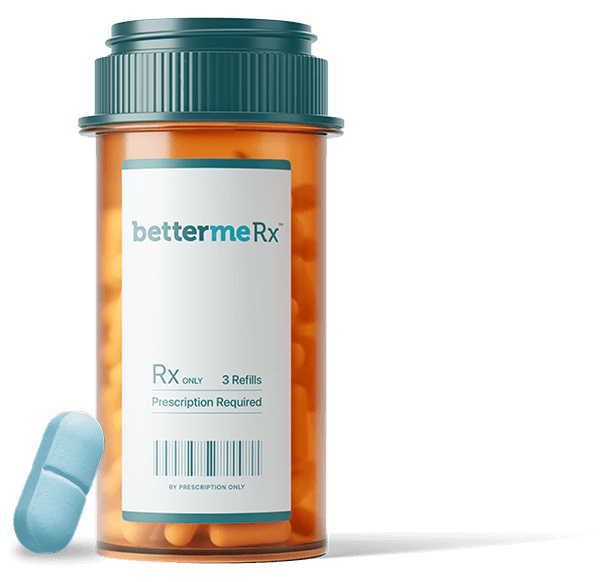Finally, an effective and easy way to quit smoking

Bupropion
Take the health questionnaire
100% online and confidential health intake form
Get your prescription
All prescriptions overseen by fully licensed and insured physicians
Get your meds
Fast free delivery from our accredited pharmacies
Bupropion
Bupropion, an atypical antidepressant, supports smoking cessation by enhancing dopamine and norepinephrine levels, improving mood and reducing cravings. It also partially stimulates nicotine receptors, easing withdrawal symptoms like irritability, restlessness, and difficulty concentrating, making it easier to quit smoking.

What is it?
Deciding to quit tobacco consumption is a decisive step that significantly impacts health, it minimizes the detrimental effects linked to smoking, including heightened risks of lung cancer, heart disease, respiratory complications, and various other severe health conditions. Seek support from healthcare professionals for support therapies or specialized programs offering personalized guidance.
How does Bupropion help?
Bupropion helps people stop smoking by reducing nicotine cravings and withdrawal symptoms. It works by altering the levels of certain brain chemicals, such as dopamine and norepinephrine, which are involved in addiction and mood regulation. This dual action helps lessen the urge to smoke and makes it easier to manage the psychological and physical aspects of quitting.
Frequently Asked Questions
What is Bupropion?
Bupropion is an extended-release oral tablet, prescription medicine that is FDA approved as an aid to smoking cessation treatment.
How does Bupropion work?
Bupropion, which is an atypical antidepressant, also helps those looking to stop smoking. Although the exact mechanism of how Bupropion helps people quit smoking is not fully understood, it is believed to work through the following actions:
Dopamine and Norepinephrine Reuptake Inhibition: Bupropion inhibits the reuptake of two important neurotransmitters in the brain: dopamine and norepinephrine. By blocking their reabsorption, Bupropion increases the levels of these neurotransmitters in the brain, leading to improved mood and increased alertness, which may help reduce the urge to smoke.
Nicotine Receptor Modulation: Nicotine, the addictive component in cigarettes, binds to specific receptors in the brain known as nicotinic acetylcholine receptors. Bupropion is thought to partially stimulate these receptors in a way that is different from nicotine, which may help reduce nicotine cravings and withdrawal symptoms.
Reduced Withdrawal Symptoms: Bupropion may alleviate some of the withdrawal symptoms associated with quitting smoking, such as irritability, restlessness, and difficulty concentrating. This can make it easier for individuals to cope with the challenges of quitting.
What can I expect with Bupropion treatment?
You begin taking Bupropion daily, 1 week before you quit smoking. This builds up the level of medicine in your body. You take Bupropion for up to 12 weeks after you stop using tobacco but you can take Bupropion for as long as 6 months to 1 year. Your medical provider will make the determination on how long your treatment should last.
How to take Bupropion?
Bupropion comes as a tablet to take by mouth. It is usually taken once a day for a few days then twice a day with or without food. Bupropion is an extended-release tablet and therefore must be swallowed whole and cannot be cut or crushed. It is very important that you have at least 8 hours between doses, and that you do not exceed two doses in a 24-hour period. Follow the directions on your prescription label carefully. Take Bupropion exactly as directed. Do not take more or less of it or take it more often than prescribed by your doctor.
What are the possible side effects of Bupropion?
Bupropion is a medication primarily used for smoking cessation and the treatment of depression. It is important to note that all medications, including Bupropion, may have potential side effects. Common side effects of Bupropion may include:
- Dry mouth
- Headache
- Insomnia or changes in sleep patterns
- Nausea or upset stomach
- Dizziness or lightheadedness
- Constipation
- Increased sweating
- Tremor or shaky hands
While these are the most commonly reported side effects, it’s essential to be aware that there could be more severe or less common side effects that require immediate medical attention. For example, some people may experience mood changes, agitation, anxiety, or even suicidal thoughts. If you experience any unusual or severe reactions while taking Bupropion, it is crucial to contact your healthcare provider.
What should I do if I miss a dose of Bupropion?
If you forget to take your daily dose of Bupropion, skip the missed dose and continue your regular dosing schedule. Do not take a double dose to make up for a missed one.
How should I store Bupropion?
Keep this medication in the original container that you received it in, tightly closed, and out of reach of children. Store it at room temperature and away from excess heat and moisture (not in the bathroom).








